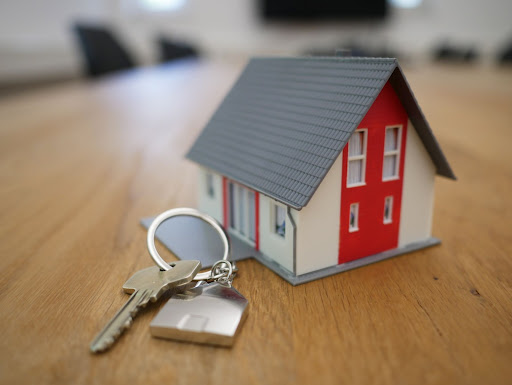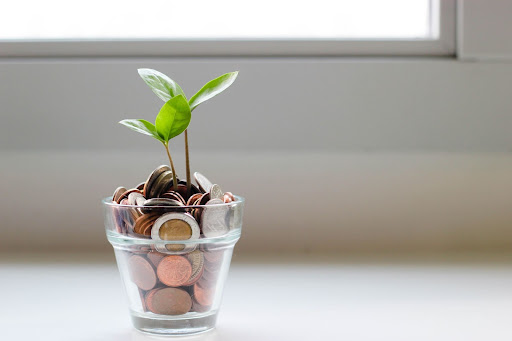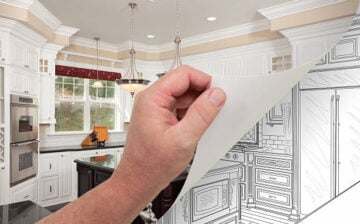
Understanding When to Rent or Buy a Home
Buying a house is a significant life event, but not everyone is ready for it. Depending on your financial situation, you may find that renting is the right option for you in the short term while making purchasing a home a goal for the future. Determining whether to buy or rent a home depends on several factors, including your unique circumstances. Here’s how you can determine whether you should buy or rent.
Assess Your Finances
The first step in determining whether to rent a property or get a mortgage is to look at your finances.
Emergency Savings Account
You should consider purchasing a home if you have at least three to six months’ worth of expenses saved for emergencies. Having an emergency fund signals you have good financial health and are prepared to buy property.
Down Payment
While you can purchase a house with a down payment of as little as 3.5%, you could be taking on more debt than necessary. It’s typically best to aim to save at least 20% of the home’s value before you decide to buy a house so you can keep your monthly mortgage payments as low as possible. If you don’t have enough to put money down on a home, then you’re better off renting and trying to build up your savings before you take on a loan you might not be able to pay off.
Debt-to-income Ratio
Lenders like to see a debt-to-ratio (DTI) between 28 and 36 percent for you to qualify for a conventional loan. You can determine your DTI by dividing your monthly expenses by your gross income. If you have a high debt to income ratio, you should wait to buy until you have a better chance of obtaining a loan.
Credit Score
The better your credit score, the more likely lenders are to approve you, and the lower your interest rate will be. On the other hand, if you have a low credit score, you may not get approved for a loan at all. Aim to increase your credit score because having good credit ratings is an improvement over having a fair credit score before you contact a lender for a mortgage loan pre-approval. If you feel like your credit score is low, or you have a lot of debt, consider renting in the short term over buying a home right now.
Consider Your Future
If you’re in good financial health to buy a house, then you should think about your future before you decide to start shopping. If you’re not sure where you want to live in the next five years, or you’re considering changing your career, then it’s best to wait to buy a house until you have achieved your life goals. However, if you plan to be tied to a geographic location for the next five to ten years, buying a house might be the right option.
You should aim to spend at least five years in a home you purchase because it allows you to appreciate the house enough to make up for the fees you’ll pay when moving onto a new home.
Suppose you’re someone who wants a more flexible living situation so you can easily find a job wherever there’s an opportunity. In that case, renting will be the best option because it allows you to move out whenever you need to, and you’ll have the opportunity to leave without paying any additional fees if you wait until your lease is up.
Determine Location Preferences
Location matters when you need to decide whether to rent or buy a home, which means you’ll need to start researching the housing market in the location you want to live. First, consider the type of house you want, including the size and features. Next, research what it will cost to rent and purchase a home in the area.
Renting will be expensive if the cost of homes in the area is high. That being said, if the price of a home is too high, renting might be your only option. If you are financially in good shape, buying a house might be more financially feasible for you than renting because mortgage payments can be cheaper than rent payments if you put enough money down on the home.
With this information, you can determine if your financial situation is better for renting or buying in the area.
Weigh the Risks
Some risks come with buying and renting. For example, you can build equity when you buy a home, but there are still some financial risks, like spending all of your savings on the home’s down payment. You can also lose money when you purchase a house if there’s a downturn in the real estate market.
There are also maintenance costs when you own your home. When you’re a renter, you don’t have to worry about fixing a broken sink, but you will pay for repairs out of your pocket when you own your home.
On the flip side, renting means you can’t build equity, and your rent will likely go up every year. Eventually, renting might be more expensive than buying a home. You also won’t have the same permanence you would if you buy a home. For example, your landlord can kick you out for breaking any rules outlined in the lease.
Renting Versus Buying
There are pros and cons to buying and renting, so it’s up to you to determine which is the right option based on your goals, financial situation, and risk you’re willing to take on. For example, even if you have perfect financial health, buying a home might not be right for you if you’re not ready to put down roots, or have bigger goals to achieve before settling down. Similarly, renting might not be for you if you’re someone who has a pet or wants to start a family within the next few months.
If you think you’re ready to buy a home, talk to a mortgage lender to see if you qualify for a home loan. If you’re pre-approved, you can begin shopping.
Check out the following post House Hunting Tips for First-Time Home Buyers for more additional tips!
Have Experience in the Moving Industry? Want an Additional Income Stream? Work With All Around Moving!
All Around Moving’s Work With Us program helps you profit. Earn extra income while applying your knowledge in the moving industry. Click here to learn more.






